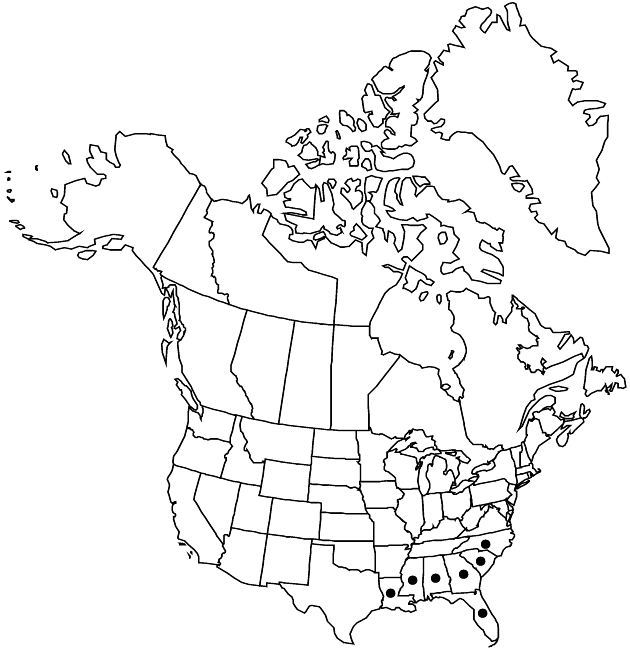Carphephorus odoratissimus var. odoratissimus
Treatment appears in FNA Volume 21. Treatment on page 537.
Revision as of 20:09, 5 November 2020 by imported>Volume Importer
Plants with strong odor of coumarin or vanilla. Basal leaves usually more than 15 × 5 cm; midstem leaves broadly elliptic, apices flared away from stems, margins often shallowly dentate. Primary head-bearing branches diverging from main axes at 10–20°. Florets mostly 7–10.
Phenology: Flowering (Aug–)Sep–Oct(–Nov).
Habitat: Pine-oak borders, longleaf pine savannas, flatwoods, fields, roadsides, fencerows, stream bottoms, seepage and boggy areas, sandy sites, limestone ridges or clay hills
Elevation: 0–80 m
Distribution

Ala., Fla., Ga., La., Miss., N.C., S.C.
Discussion
Selected References
None.
Lower Taxa
None.
... more about "Carphephorus odoratissimus var. odoratissimus"